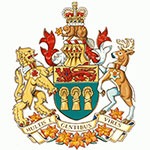Court Watching
Courts of SaskatchewanCourts of Saskatchewan
Court Watching
Court Resources
Court proceedings are open to the public and student groups routinely come to watch.
Observing court provides a valuable opportunity to learn first-hand how the court system works and how laws are enforced and applied.
1. Initial Considerations
Before bringing a group of observers to court, consider the following:
- The live court is different than “TV Court”. Matters move slowly and information is discussed in great detail. The material may be dry at times and it may take close attention to follow along. This is particularly true with civil trials. Further, trials don’t often wrap up neatly in one hour. Observers may see only a portion of a case during a visit. It is also worth noting that while some courts conduct trials, others deal with issues such as bail hearings, first appearances on charges, trial scheduling and guilty pleas.
- Court schedules are unpredictable. Visitors may plan to watch a specific trial, only to find out the day before the visit that it has been adjourned or settled. The best advice is to book the visit in advance and call again just before the visit to confirm that there will likely be something to watch that is of interest to the group. If there isn’t, it’s important to be flexible enough to reschedule the visit. As well, a proceeding may start and then conclude in only a few minutes. It’s wise to visit court on a day where there are a number of matters scheduled so that there are alternatives.
- Consider the maturity of the group. Visitors to court are expected to watch without disturbing the proceedings. Consider how long the group can sit and listen before becoming restless. When travelling from some distance to observe the court, keep in mind that the group will already have been sitting for that distance, as well. The length of time spent watching the court can be as long or as short as desired.
- Consider the subject matter of court proceedings. Sometimes, information discussed in court can be very graphic and may not be suitable for younger observers (for example, in a murder or assault trial). The court staff can advise of the nature of the proceedings; however, in some courts – docket court is a good example – it is not always possible to know in advance what evidence will arise. A judge has the authority to limit access to a courtroom in special circumstances. For example, it may be easier for a child victim to give evidence without a large audience present.
2. MAKING THE ARRANGEMENTS
In Regina, the Courts Communications Officer arranges court visits and bookings. For court locations outside of Regina, contact the court house directly and request to speak to the the court clerk or the local registrar. (Provincial Court offices; Court of King’s Bench offices) Scheduling your visit in advance ensures:
- Double bookings are avoided. Most courtrooms only have enough seats for one group at a time. Sometimes large groups need to split into two smaller, supervised groups.
- The visit occurs when the court is scheduled. In many smaller centres, court is not held daily. Advanced scheduling allows staff to provide dates when docket court or trials are scheduled. Remember, the schedule often changes at the last minute. It’s a good idea to double-check with court staff just prior to the visit.
- Court staff will notify security personnel so they will expect the group’s arrival. Please note that the group will still have to go through security screening upon arrival.
Court staff can advise you of any specific instructions you may need.
3. Preparing for the Visit
You may wish to review some of the Courts of Saskatchewan resources available to the public before attending court.
4. Security Screening
In some cities (including Regina, Saskatoon and Prince Albert), perimeter security screening is in place. Everyone entering the court house will be asked to empty their pockets before walking through an “airport-style” metal detector. Purses and bags will be screened as well.
This process can sometimes cause line-ups to form at the court entrance during busy times of the day. Therefore, visitors to the court house are asked to arrive early.

If you have any questions about scheduling a court visit, please contact:
